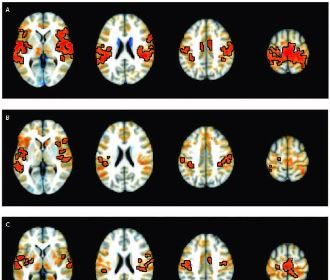New Findings on Metabolic Syndrome Pave Way for Future Drug Development

CLEVELAND, Ohio — A new study from researchers at University Hospitals Cleveland Medical Center provides evidence as to why people suffer from overnutrition and possible therapeutics that could be developed to treat metabolic syndrome.
“I was always interested in body weight from a scientific perspective and what causes it to be maintained and go up and down,” said Atul Chopra, senior author on the study and attending medical geneticist at the Center for Human Genetics, University Hospitals Cleveland Medical Center, during a phone call with The Well News.
According to Chopra, metabolic syndrome develops as a result of overnutrition, starting with obesity that damages multiple organ systems and often leads to diabetes.
For Chopra, the question of how to treat metabolic syndrome began in 2012-2013 when he was working in medical genetics. The patients he was working with had a rare genetic disorder that caused an extreme form of thinness since birth.
“I was interested in how body weight is maintained and controlled in this extremely rare disease that impacts less than 10 people,” said Chopra.
Studying the DNA of two patients who had low appetite and low glucose levels, Chopra was able to hone in on a mutated gene, noticing its end was truncated in a way which did not align with the gene mutation seen in most individuals of normal body weight.
He studied the piece of the gene missing in abnormally thin patients — hypothesizing that whatever was missing in these patients was responsible for stimulating appetite and glucose production in the body.
He tested the hypothesis with a team of researchers and discovered his theory was right. He had discovered asprosin, a hormone present in blood that controls normal hunger impulses and signals the liver to secrete glucose into the bloodstream.
“Asprosin makes you feel a normal appetite and also talks to the liver cells and makes them release glucose into the bloodstream,” said Chopra.
Chopra published the findings on asprosin in 2016, which kicked off a new mission: to find out the origin of asprosin and figure out how it functions in those who have metabolic syndrome.
“If you pharmacologically use drugs that prohibit that asprosin, would you get protection? We were confident this would work, and knew what would happen in humans and mice when their asprosin levels are low,” said Chopra.
His most recent study published at the beginning of April provides evidence of Chopra’s latest discovery of what is called Ptprd, which is a receptor of the asprosin.
“When we discovered Ptprd suddenly a new path opened to discovering a new drug,” said Chopra.
“The hormone is swimming along in this sort of liquid, either blood or cerebrospinal fluid, and it comes along and finds that neuron and attaches to part of Ptprd. When asprosin comes along, in contact with these neurons, it finds this extra cellular part of Ptprd, binds it, attaches to it, and activates Ptprd to signal cells, leading to appetite stimulation,” continued Chopra.
His studies, funded by the National Institutes of Health, examine the role of a monoclonal antibody treatment and a new drug called a receptor trap to decrease levels of appetite and reduce blood glucose levels in those suffering from metabolic syndrome.
“Whether using the receptor trap or monoclonal antibodies, the effect was roughly the same for [lowered] glucose and [decreased] appetite,” said Chopra.
Chopra said researchers have been trying to develop drugs to treat overnutrition for the past 100 years, but mostly everything has failed.
“It’s clear that people need help. Almost 100% of patients who lose weight, all of them gain it back,” said Chopra.
He said there is one drug hormone, known as GLP-1 receptor, which has shown the ability to reduce the body weight of those who have metabolic syndrome by 15-20%.
Chopra said that there are severe side effects to the GLP-1, such as nausea and vomiting, which has led to nearly 70% of individuals dropping the treatment within two years of taking it.
There is also bariatric surgery, which Chopra said has worked for those suffering from overnutrition at suppressing appetite and losing weight, but that treatment is an invasive procedure which requires surgery and recovery time.
“There is a great need for new drugs in this space … that’s the beauty of science, we are figuring out the truth of nature with experimentation,” said Chopra.
Chopra said the next step is figuring out other functions of asprosin, as many questions remain for researchers.
The possibility of developing therapeutics, both a monoclonal antibody treatment and a receptor trap, will remain for now only a possibility as more questions pop up with each new discovery.
“Now that we know the identity of asprosin receptors in the brain, does it do other things that are so far hidden?”
Alexa can be reached at [email protected]
This article was updated to add a percentage for the rate pf nonadherence to GLP1-receptor agonist therapy.
























